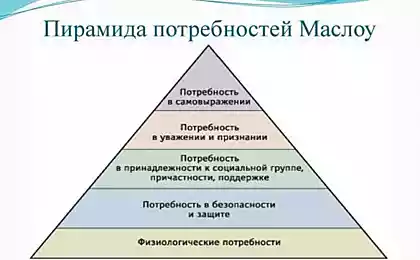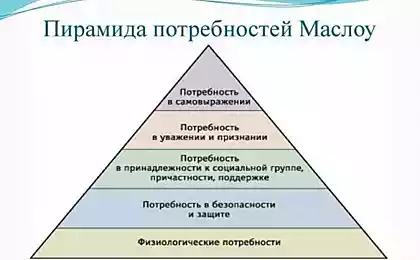759
Motivation: why carrots and sticks
Why do some children have been practising a lot and willingly, but the difficulties only adds to his energy and desire to achieve goals, and make like a stick, and in the event anything significant obstacles lose interest or just stop the activity?
What really depend on the children's progress in learning and communication? And is it possible to teach a child perseverance? The key to answering these questions lies in the motivation. It helps us to recover from setbacks and defeats, don't shy away from heavy tasks and achieve success.

It all starts with self-control
One of the most memorable and simple experiments that allows to identify the level of motivation of the child, was conducted in 1972 by psychologist from Stanford Voltaire Michel. Marshmallow test (the name can be translated as "the Marshmallow test") provides an opportunity to learn the child's ability to pacify their incessant desire for great achievements in the future.
Child 4-5 years left in a room alone at a table, on which lay a marshmallow. Previously he explained the rules of the "game". To get the second marshmallow, you need to wait for the return of the adults and not to eat a treat that is already on the table.

The results clearly show the level of self-control and the presence (or absence) of the ability to defer compensation, that is, to resist temptation in the moment so after receiving a big reward. Some children ate the marshmallow without waiting for the end of the explanation. But there were those who were able to wait more than 10 minutes alone with some tempting lying right in front of them sweetness. All just to get even more.
Researchers found that children who in the course of this experiment demonstrated the ability to delay reward in the future not only show better results in studies, but also easier to meet people, have more friends, they are able to establish stronger contacts in the group, and most importantly, they are easier and more effectively cope with difficulties.
Further scientific studies have shown that the predisposition to self-control is manifested in children from a very early age. An analysis was conducted of the behavior of the six-month babies. After the usual playing with the child, mom asked for a few minutes just to look at the baby without emotion. For the baby is a strange and extremely unpleasant situation. The first reaction of almost all babies outrage.
For the indignation of the majority of children followed the tears. But some babies instead of crying, on the contrary began to smile. If the mother's face did not change, they intuitively began to look for a way to relieve stress, move themselves to other activities: looking around, studying the surroundings.
Professor, Department of psychology, Seoul national University Quag Kimju believes that this behavior shows the child's ability, that in the future when difficulties arise will allow him to contain their emotions and seek the best out of the situation. This affects how the child will build relationships with other people.
In addition, the ability in a stressful situation to control your emotions and switch their own attention and to relieve stress is directly related to the development of the ability to defer reward. The behavior of the children in the marshmallow experiment with could await the return of adults was one thing in common: they did everything they could to not look at the coveted treat in front of their nose, and to distract myself from the thoughts that sweetness can be eaten.
This is a very important and useful quality. Once a person begins to focus all attention on negative time, the negative emotions growing in him, like a snowball, and keep them or find a sober solution to the problem becomes almost impossible.
The above-described experiments are simple, but their results are very revealing. Any parent can conduct such a "mini-test" for your child to learn more about his abilities and predispositions. And even if your child ate the marshmallow without waiting for the end of the explanation of the rules of the "game", do not worry.
Fortunately, to begin to teach a child perseverance and motivation, it's never too early and never too late. There are no children without positive motivation, only children who for one reason or another lost it. To restore this quality to the child – the parents.

Techniques that work
In everyday communication keen to show him that patience always brings the best result and more satisfaction (a reward). Try to notice and always encourage even the most insignificant attempts of the child to exercise persistence and patience. The parent word and praise for a small child is so much more than we usually believe.
Of course, the development of motivation is influenced by many different factors. However, psychologists believe that a trusting relationship with parents significantly influence on the formation of the child's abilities to overcome difficulties. Mom and dad for the baby the first and the foremost authority. The child truly believes you and your words.
This faith must be treated with respect. It is important to always perform these the child of promise. Do not use empty excuses like, "I'll buy you", "I'll come back later" where "later" actually means "never." It often seems that a child will forget that promise parents and their desire. However, this is not always the case.
In fact, not fulfilling their promises, even the ones that seem utterly insignificant to adults, parents place the child in a situation of constant disappointment. Conscious or not, such frustration creates in the child the conviction that his patience leads us to nothing. The promised delayed reward never comes. Then why restrain yourself, keep trying or wait?
As a result, the baby loses the confidence and ability to self-control. If the child knows that parents will perform what he promised, he grows more confident, and it will soon develop such qualities as patience and perseverance.

The purpose of "to learn" and to "show themselves"
All children learn from the mistakes and failures. However, not all equally perceive them. Someone when faced with difficulties loses interest, a verdict of "I can't" and give up. For others, failure is only an additional incentive to harder to reach your goals.
A Professor at Stanford University Dr. Carol S. Dvek, one of the world's leading researchers in the field of motivation, believes that this difference in behavior is determined by the difference of goals targeted children in performing tasks. In their study, Dr. Dvek allocates so-called "indicative" and "educational" purposes.
A child's motivation can be based on the desire to show themselves, to show others his abilities or desire to learn something new, overcome the difficulty and to solve the problem. In the first case the children tend to rapid results and quick reward (in the form of praise, grades, promotion etc). Difficulties discouraged them.
Such children easily lose confidence in ourselves and failure is usually attributed to lack of ability. Thus are born all of us familiar phrase: "I can't", "it's not for me", "I can't do it", "it's too hard", which usually follows the failure of the mission.
Children aimed at the "educational" purpose, more likely to choose difficult tasks and, even if there are failures and failures, their self-esteem suffers much less. Own mistakes, such children are referred, usually not to lack of ability and lack of diligence. "To cope with this problem, you need only a little more than try," they think. Of course, this motivation can not give positive results.
The task of parents in this case to pay attention to what actually motivates a child and to instill in him the desire to learn, to cope with the problem, solve the problem yourself. It is important to pay attention for a few moments.

Cultivate in the child independence
Lack of faith in own abilities – the main enemy of motivation. As soon as the child believed that it "it can't" it stops all effort and desire to act.
To help your child become more confident, need, primarily, to teach him to act independently. And the sooner parents start to do it, the better. The life of a small child consists of trial and error. But it is very important that the parents allowed the child (under the safest limit of course) to make these mistakes.
If you see that your child tries unsuccessfully to get his foot in the Trouser leg, button your jacket or make a new puzzle, do not rush to "help" and do everything for him. Let the child cope with the task. Playing with the child, help the Council, but never suggest answers, and do not perform tasks together with him, if in fact it means you run them for the child.
Be patient and prepared to calmly watch childish mistakes. Very often mom and dad are focused on "demonstration" purpose. Any parent wants his child to be the most capable of all catch on the fly and all had success. But whether quick success, if the execution of the task, the child only used your knowledge and skills not acquired any skills?
Such "success" affect the self-esteem of the kid even worse than error. The child knows that the job is done, not himself. Eventually lose sense of accomplishment: "I did" "I did". There is a psychological dependency on foreign assistance, which is maintained even when the physical need such assistance are already long gone.
To really help the child with something to cope, be it a counselor, encourage his efforts and maintain his faith in himself, but don't do it. Always tell him: "You will cope", "You can do it, you only need a little bit to try", "You can do it yourself, just try again." Proceed through the questions:
— What do you think?
— What do you think needs to be done next?
The sooner you start such training, the better. And most importantly, do not worry and do not be angry at the child for what he can't do something. Mistakes are a natural part of the learning process. Without them it is impossible to go forward.
Make reasonable demands
Another obstacle in the development of positive motivation in a child is the high expectations parents. Showing your child how much you expect from him, you put him in a situation of stress. The need always to meet the expectations of parents creates tension, which in itself can be a cause of children's failure. In addition, the purpose of the job automatically from the "training" becomes "significant". The child already tries to learn, but only seek to show parents that they didn't get it wrong.
Psychologist and Stanford Professor Deborah staypek Sibir in many of his works reminds parents that exerting undue pressure on the child, the parents permanently get a result opposite of the desired effect. Try to align their expectations with the real situation. Many parents have very certain ideas about what their children should do well.
Thus ignored the real abilities of the child suffering the children's self-esteem and motivation. Requirements parents should be slightly above the level at which the child is at the moment. Figuratively speaking, it is not necessary to require the Trinity to become a straight-a student, direct the child's efforts on getting a solid four. And there the five are not quite so unattainable.

Develop internal motivation of the child
Very often parents and teachers choose the method of carrot and stick to stimulate children's motivation. This method is old as the hills and definitely gives some effect. But the promise of reward or threat of punishment can only develop external motivation. In one of his studies, Professor of staypek Sibir claims that despite the importance of external motivation, the greatest results can be achieved if to develop a child's intrinsic motivation. Children learn much faster if in the classroom they are driven by curiosity and interest, not a desire to get the candy.
There's an old parable that the reward is one of the surest ways to get the child something to do. Near the house an old man all day frolicking kids. It was so loud that the old man didn't know where to go from headache. Finally he came up with a way to teach children to make noise under his Windows.
One day he called them and said that he loves to listen to children's laughter and voices, so it will give them two coins each day, if they come to his house and make noise as loudly as possible. The kids were screaming under the Windows of the old man all day and in the evening received my reward.
A week later, he again called the guys and said, sorry, now he can give them only two coins a day. Children continued to come, but less willingly. When on the third week, the old man told them to give the coin a day, the children became angry and said will not come to play under his Windows at all. So the wise man finally achieved peace and quiet.
This story clearly shows how the influence of external stimuli on motivation. In the end the job will depend entirely on the receipt and amount of awards. Over time, the child will simply forget how to do anything without the proverbial "carrot". In response to errors and failures will be determined by reward or punishment.
A much more effective way to motivate your child is to get them interested. Any task can be adapted to individual abilities, writes Professor staypek Sibir, so to make it interesting for your child. If the ultimate goal is to learn, the form of acquiring knowledge.

Praise the child for effort more than for result
Psychologists say that it is very important to let know to the child that you are not indifferent to his efforts. It is known that excessive praise has a negative effect on the motivation of the child. However, Professor Carol Dvek believes that even praise "within reason" should be praise children's efforts.
A list of fascinating books for 10-12 year olds, compiled by 6th grader to peers
How to teach children about conscious consumption
The child must feel that his perseverance, patience, labor, which he applied to the job for you even more important than the result that only a natural consequence. It turns out is not the one who can do everything, and the one who tries. Tell your children. Praise their efforts more than accomplishments. Such praise will convince the child that the key to his success in diligence and perseverance. And it's true!
Author: Evgeny Rogachev
P. S. And remember, only by changing their consumption — together we change the world! ©
Source: letidor.ru/article/motivatsiya_pochemu_ne_rabotae_33241/
What really depend on the children's progress in learning and communication? And is it possible to teach a child perseverance? The key to answering these questions lies in the motivation. It helps us to recover from setbacks and defeats, don't shy away from heavy tasks and achieve success.

It all starts with self-control
One of the most memorable and simple experiments that allows to identify the level of motivation of the child, was conducted in 1972 by psychologist from Stanford Voltaire Michel. Marshmallow test (the name can be translated as "the Marshmallow test") provides an opportunity to learn the child's ability to pacify their incessant desire for great achievements in the future.
Child 4-5 years left in a room alone at a table, on which lay a marshmallow. Previously he explained the rules of the "game". To get the second marshmallow, you need to wait for the return of the adults and not to eat a treat that is already on the table.

The results clearly show the level of self-control and the presence (or absence) of the ability to defer compensation, that is, to resist temptation in the moment so after receiving a big reward. Some children ate the marshmallow without waiting for the end of the explanation. But there were those who were able to wait more than 10 minutes alone with some tempting lying right in front of them sweetness. All just to get even more.
Researchers found that children who in the course of this experiment demonstrated the ability to delay reward in the future not only show better results in studies, but also easier to meet people, have more friends, they are able to establish stronger contacts in the group, and most importantly, they are easier and more effectively cope with difficulties.
Further scientific studies have shown that the predisposition to self-control is manifested in children from a very early age. An analysis was conducted of the behavior of the six-month babies. After the usual playing with the child, mom asked for a few minutes just to look at the baby without emotion. For the baby is a strange and extremely unpleasant situation. The first reaction of almost all babies outrage.
For the indignation of the majority of children followed the tears. But some babies instead of crying, on the contrary began to smile. If the mother's face did not change, they intuitively began to look for a way to relieve stress, move themselves to other activities: looking around, studying the surroundings.
Professor, Department of psychology, Seoul national University Quag Kimju believes that this behavior shows the child's ability, that in the future when difficulties arise will allow him to contain their emotions and seek the best out of the situation. This affects how the child will build relationships with other people.
In addition, the ability in a stressful situation to control your emotions and switch their own attention and to relieve stress is directly related to the development of the ability to defer reward. The behavior of the children in the marshmallow experiment with could await the return of adults was one thing in common: they did everything they could to not look at the coveted treat in front of their nose, and to distract myself from the thoughts that sweetness can be eaten.
This is a very important and useful quality. Once a person begins to focus all attention on negative time, the negative emotions growing in him, like a snowball, and keep them or find a sober solution to the problem becomes almost impossible.
The above-described experiments are simple, but their results are very revealing. Any parent can conduct such a "mini-test" for your child to learn more about his abilities and predispositions. And even if your child ate the marshmallow without waiting for the end of the explanation of the rules of the "game", do not worry.
Fortunately, to begin to teach a child perseverance and motivation, it's never too early and never too late. There are no children without positive motivation, only children who for one reason or another lost it. To restore this quality to the child – the parents.

Techniques that work
In everyday communication keen to show him that patience always brings the best result and more satisfaction (a reward). Try to notice and always encourage even the most insignificant attempts of the child to exercise persistence and patience. The parent word and praise for a small child is so much more than we usually believe.
Of course, the development of motivation is influenced by many different factors. However, psychologists believe that a trusting relationship with parents significantly influence on the formation of the child's abilities to overcome difficulties. Mom and dad for the baby the first and the foremost authority. The child truly believes you and your words.
This faith must be treated with respect. It is important to always perform these the child of promise. Do not use empty excuses like, "I'll buy you", "I'll come back later" where "later" actually means "never." It often seems that a child will forget that promise parents and their desire. However, this is not always the case.
In fact, not fulfilling their promises, even the ones that seem utterly insignificant to adults, parents place the child in a situation of constant disappointment. Conscious or not, such frustration creates in the child the conviction that his patience leads us to nothing. The promised delayed reward never comes. Then why restrain yourself, keep trying or wait?
As a result, the baby loses the confidence and ability to self-control. If the child knows that parents will perform what he promised, he grows more confident, and it will soon develop such qualities as patience and perseverance.

The purpose of "to learn" and to "show themselves"
All children learn from the mistakes and failures. However, not all equally perceive them. Someone when faced with difficulties loses interest, a verdict of "I can't" and give up. For others, failure is only an additional incentive to harder to reach your goals.
A Professor at Stanford University Dr. Carol S. Dvek, one of the world's leading researchers in the field of motivation, believes that this difference in behavior is determined by the difference of goals targeted children in performing tasks. In their study, Dr. Dvek allocates so-called "indicative" and "educational" purposes.
A child's motivation can be based on the desire to show themselves, to show others his abilities or desire to learn something new, overcome the difficulty and to solve the problem. In the first case the children tend to rapid results and quick reward (in the form of praise, grades, promotion etc). Difficulties discouraged them.
Such children easily lose confidence in ourselves and failure is usually attributed to lack of ability. Thus are born all of us familiar phrase: "I can't", "it's not for me", "I can't do it", "it's too hard", which usually follows the failure of the mission.
Children aimed at the "educational" purpose, more likely to choose difficult tasks and, even if there are failures and failures, their self-esteem suffers much less. Own mistakes, such children are referred, usually not to lack of ability and lack of diligence. "To cope with this problem, you need only a little more than try," they think. Of course, this motivation can not give positive results.
The task of parents in this case to pay attention to what actually motivates a child and to instill in him the desire to learn, to cope with the problem, solve the problem yourself. It is important to pay attention for a few moments.

Cultivate in the child independence
Lack of faith in own abilities – the main enemy of motivation. As soon as the child believed that it "it can't" it stops all effort and desire to act.
To help your child become more confident, need, primarily, to teach him to act independently. And the sooner parents start to do it, the better. The life of a small child consists of trial and error. But it is very important that the parents allowed the child (under the safest limit of course) to make these mistakes.
If you see that your child tries unsuccessfully to get his foot in the Trouser leg, button your jacket or make a new puzzle, do not rush to "help" and do everything for him. Let the child cope with the task. Playing with the child, help the Council, but never suggest answers, and do not perform tasks together with him, if in fact it means you run them for the child.
Be patient and prepared to calmly watch childish mistakes. Very often mom and dad are focused on "demonstration" purpose. Any parent wants his child to be the most capable of all catch on the fly and all had success. But whether quick success, if the execution of the task, the child only used your knowledge and skills not acquired any skills?
Such "success" affect the self-esteem of the kid even worse than error. The child knows that the job is done, not himself. Eventually lose sense of accomplishment: "I did" "I did". There is a psychological dependency on foreign assistance, which is maintained even when the physical need such assistance are already long gone.
To really help the child with something to cope, be it a counselor, encourage his efforts and maintain his faith in himself, but don't do it. Always tell him: "You will cope", "You can do it, you only need a little bit to try", "You can do it yourself, just try again." Proceed through the questions:
— What do you think?
— What do you think needs to be done next?
The sooner you start such training, the better. And most importantly, do not worry and do not be angry at the child for what he can't do something. Mistakes are a natural part of the learning process. Without them it is impossible to go forward.
Make reasonable demands
Another obstacle in the development of positive motivation in a child is the high expectations parents. Showing your child how much you expect from him, you put him in a situation of stress. The need always to meet the expectations of parents creates tension, which in itself can be a cause of children's failure. In addition, the purpose of the job automatically from the "training" becomes "significant". The child already tries to learn, but only seek to show parents that they didn't get it wrong.
Psychologist and Stanford Professor Deborah staypek Sibir in many of his works reminds parents that exerting undue pressure on the child, the parents permanently get a result opposite of the desired effect. Try to align their expectations with the real situation. Many parents have very certain ideas about what their children should do well.
Thus ignored the real abilities of the child suffering the children's self-esteem and motivation. Requirements parents should be slightly above the level at which the child is at the moment. Figuratively speaking, it is not necessary to require the Trinity to become a straight-a student, direct the child's efforts on getting a solid four. And there the five are not quite so unattainable.

Develop internal motivation of the child
Very often parents and teachers choose the method of carrot and stick to stimulate children's motivation. This method is old as the hills and definitely gives some effect. But the promise of reward or threat of punishment can only develop external motivation. In one of his studies, Professor of staypek Sibir claims that despite the importance of external motivation, the greatest results can be achieved if to develop a child's intrinsic motivation. Children learn much faster if in the classroom they are driven by curiosity and interest, not a desire to get the candy.
There's an old parable that the reward is one of the surest ways to get the child something to do. Near the house an old man all day frolicking kids. It was so loud that the old man didn't know where to go from headache. Finally he came up with a way to teach children to make noise under his Windows.
One day he called them and said that he loves to listen to children's laughter and voices, so it will give them two coins each day, if they come to his house and make noise as loudly as possible. The kids were screaming under the Windows of the old man all day and in the evening received my reward.
A week later, he again called the guys and said, sorry, now he can give them only two coins a day. Children continued to come, but less willingly. When on the third week, the old man told them to give the coin a day, the children became angry and said will not come to play under his Windows at all. So the wise man finally achieved peace and quiet.
This story clearly shows how the influence of external stimuli on motivation. In the end the job will depend entirely on the receipt and amount of awards. Over time, the child will simply forget how to do anything without the proverbial "carrot". In response to errors and failures will be determined by reward or punishment.
A much more effective way to motivate your child is to get them interested. Any task can be adapted to individual abilities, writes Professor staypek Sibir, so to make it interesting for your child. If the ultimate goal is to learn, the form of acquiring knowledge.

Praise the child for effort more than for result
Psychologists say that it is very important to let know to the child that you are not indifferent to his efforts. It is known that excessive praise has a negative effect on the motivation of the child. However, Professor Carol Dvek believes that even praise "within reason" should be praise children's efforts.
A list of fascinating books for 10-12 year olds, compiled by 6th grader to peers
How to teach children about conscious consumption
The child must feel that his perseverance, patience, labor, which he applied to the job for you even more important than the result that only a natural consequence. It turns out is not the one who can do everything, and the one who tries. Tell your children. Praise their efforts more than accomplishments. Such praise will convince the child that the key to his success in diligence and perseverance. And it's true!
Author: Evgeny Rogachev
P. S. And remember, only by changing their consumption — together we change the world! ©
Source: letidor.ru/article/motivatsiya_pochemu_ne_rabotae_33241/
Presented to the joint hypercar Aston Martin and Red Bull
Apricot clafoutis: the perfect summer dessert!























